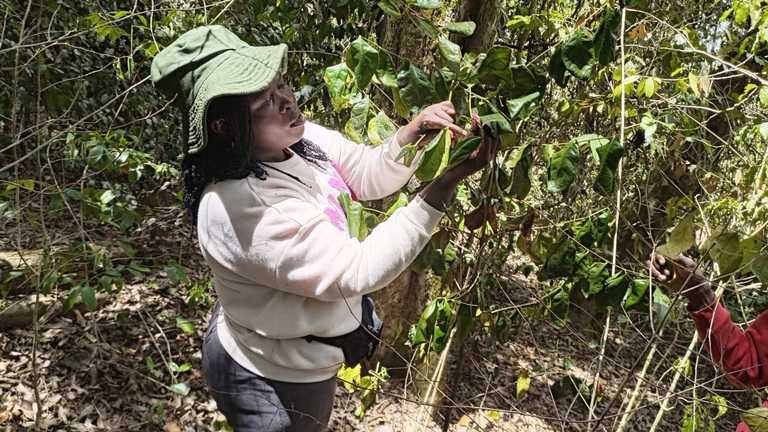

Loading search...
Loading search...
Loading site search...
Loading site search...
Loading site search...
Loading...
Loading site search...
Loading site search...
Posted 22 September 2025

Positive benefits for humans and the environment are being held back by restrictions on drone use in European vineyards, researchers have warned.
The study by a team at ���붯�� in collaboration with researchers at the Agricultural University of Athens looked at the potential impact of spraying pesticides onto the vineyards using drones – a method of application which is currently illegal in countries across the European continent, including the UK, under most circumstances.
The research was the first to simultaneously estimate farm profitability, environmental impact and farm operators’ exposure to pesticides and has garnered significant attention at industry conferences, with drone firms highlighting the positive benefits changes to Europe’s current regulatory regime could bring.
The study is part of the wider (D4AgEcol) project, funded by Innovate UK and the EU Horizon Research and Innovation Programme.
D4AgEcol researchers seek to identify appropriate digital tools and technologies and work out how their potential can be tapped to improve current farming methods for both people and planet.
Research and Innovation Associate Elias Maritan said: “Our goal was to try to see how innovation in agriculture could help with the transition to sustainable agriculture. We are specifically looking at agriculture with a framework that considers economic, environmental and social domains.
“We conducted a range of analyses on different case studies and this case study – looking at drones and viticulture - stood out. We are collaborating with the Agricultural University of Athens, who have been doing pesticide drift trials with their own drone.
“It was a good case study, especially considering the regulatory implications and how this kind of technology is already widely adopted in other areas of the world.
“We saw the potential, and we wanted to incorporate this into our portfolio of analyses.”
The team’s work demonstrated how the specific terrain of Greek viticulture – often carried out on steep hillsides – could offer opportunities for new technology to help boost sustainability.
Elizabeth Creak Chair of Agri-Tech Economics, Professor James Lowenberg-DeBoer, added: “One of the reasons for looking at vineyards is that the most common waiver in the EU for drone applications is for steep vineyards, where the alternative is backpack spraying by a human, which has enormous implications on the human exposure to the pesticides. Drone spraying can reduce human exposure by 90 per cent.”
The team’s modelling found that reduction in exposure – and the ability to target applications much more specifically – meant there would be notable benefits to both the environment and to human health if drones were used.
However, they also found the use of the technology would not yet prove profitable, owing to the current regulatory regime holding back the uptake of drones in Europe.
While drones did offer savings to farmers, the current high costs of hiring them meant that, in most scenarios, it would be more profitable to continue with ground spraying equipment.
Despite this the team found that, in specific contexts in Greece, drones would be beneficial – particularly for vineyards where seasonal labour was unavailable.
Elias added: “In remote areas with steep slope viticulture, we found that drones would really help all round - as around a quarter of the vineyard would be abandoned if we assume that there is no manual labour to support with pesticide spraying.
“But with the drone, because of the time savings, it's much faster than using a backpack sprayer.
“In that case the drone scenario would be more profitable.”
Professor Lowenberg-DeBoer added: “Land abandonment in vineyards has implications beyond agriculture - in places like the Rhine Valley in Germany, and to some extent also in Greece, tourists come because they like to see and visit these steep slope vineyards.
“If the vineyards are abandoned, that hurts tourism as well as agriculture, so it has implications for the whole of society.”
Ultimately, securing further benefits from drone use will depend on whether European regulators were willing to relax their current stringent permissions processes.
The researchers added: “These permissions have been exploited in countries such as Germany and Hungary, but they consist of lengthy, costly and complex procedures involving multiple authorities and thereby limiting large-scale adoption of UAV spraying in the EU.
“Whether legislation will catch up with UAV technology advancement and exploit its potential to contribute to a transition to agroecological farming in Europe will depend on the future course of policymaking action at the EU level - and on the evidence being produced by task forces, private companies and public research globally.”










We use cookies to ensure that we give you the best experience on our website. If you continue without changing your settings, we'll assume that you are happy to receive all cookies on the website. However, you can change your cookie settings at any time.